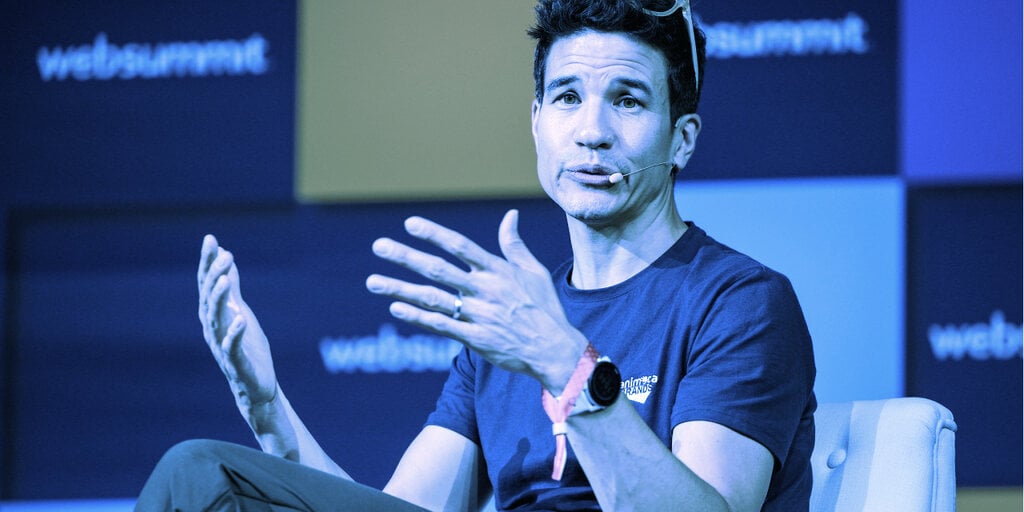The metaverse means many things to many people, whether that be Meta’s virtual reality “office,” Fortnite’s combination of gameplay and social space, or Decentraland’s NFT-powered virtual world.
But to Robby Yung, CEO of metaverse investment firm and game publisher Animoca Brands, one fact is inescapable.
“There is no metaverse without Web3, because you need to have that transaction layer so that you have interoperability between content and you can bring it from place to place,” he said in a panel discussion at Web Summit in Lisbon, Portugal.
“We as an industry are working on setting standards for that,” he added. “We’ve set up some various consortiums to try to address those issues.”
Animoca Brands is one of the founding members of the Open Metaverse Alliance, an industry group launched this month that is pushing for interoperability standards in the metaverse. Those standards would enable NFT content purchased on one metaverse platform to seamlessly integrate with another, so that an NFT bought on Decentraland could be used in The Sandbox, for example.
But one key player in the Web3 space has yet to commit to joining the Open Metaverse Alliance: Bored Ape Yacht Club owners Yuga Labs, which this week revealed that it’s hard at work on its own open metaverse NFT standards.
Yung acknowledged that there’s a long road ahead for investors in the metaverse. “We have to be realistic that it’s a long term plan,” he said. “I mean, we’re building the 3D internet, this is going to take 10 years or more, probably.”
VR a ‘big distraction’
Yung, like Animoca founder and executive chairman Yat Siu, is dismissive of Meta’s metaverse approach—particularly its effort to create a metaverse centered around virtual reality. “My personal view is I think VR is a big distraction,” he said, adding that VR is “just one platform” by which the metaverse can be accessed.
Meta, he said, has focused on defining the metaverse as “akin to VR,” something that Yung described as “a mistake.”
Certainly, Meta’s all-in foray into virtual reality has been a costly one so far; last month its metaverse division reported a $3.67 billion quarterly loss.
Stay on top of crypto news, get daily updates in your inbox.
